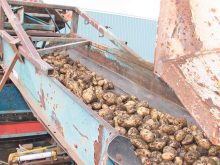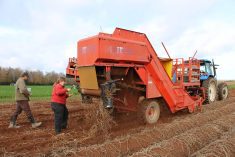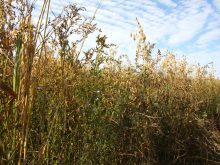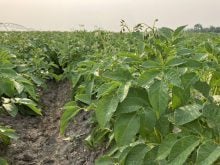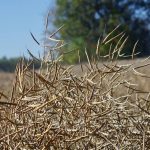Potato producers have seen their last year for the old label of mancozeb.
The grace window given to the multi-site contact fungicide by Health Canada ran out as of November 2022.
The fungicide has been “a staple in the industry for fungicide use,” said Dan Sawatzky, manager of the Keystone Potato Producers Association.
Read Also
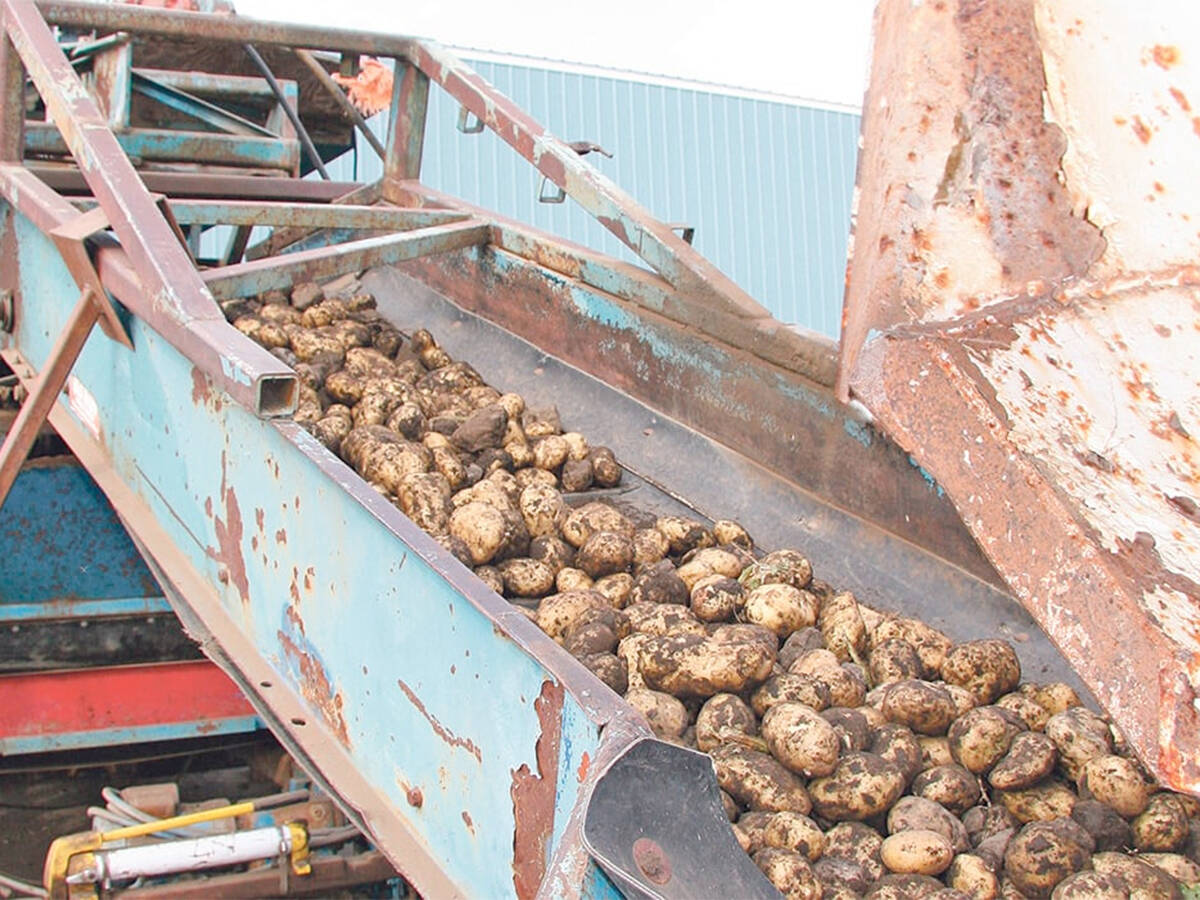
Potato growers beware new PVY strains
Newer strains of potato virus Y (PVY) are creating headaches for potato farms in Eastern Canada, and Manitoba farmers should pay attention
“I think there are other chemistries that people can bring into the mix… it’s not that we’re completely dependent on this,” he added. “We’ll survive it.”
He noted additional costs associated with some of those alternatives.
Why it matters: Mancozeb is one of several priority potato pesticide ingredients in the regulatory crosshairs in the last 10 years, due to either their impact to human health or the environment.
In 2018, mancozeb’s registration was re-evaluated by Health Canada’s Pest Management Regulatory Agency (PMRA). The agency initially proposed cancelling all uses of the fungicide, with the exception of greenhouse tobacco, citing the environmental risks to small birds and mammals with foliar application, as well as human health concern for anyone working with the fungicide as a seed treatment.
In early 2019, with the public consultation window on the proposal closing, the government gave the Canadian Horticultural Society and Canadian Potato Council an extra 60 days to state their case for the product. Industry had previously argued that the PMRA’s evaluation had overestimated rates of mancozeb being applied. The industry groups released a survey meant to gather real farm data on mancozeb use, number of applications, rates, and other information.
In 2020, the PMRA said mancozeb still met the bar for human health and the environment when used in limited foliar treatments, although all seed treatments were on the chopping block, including potato seed pieces. Foliar applications were limited to eight a year.
[RELATED] Natural pest control still a challenge
All mancozeb products would have to have new labels within 24 months of the final decision, the agency said.
The PMRA also gave the industry two years to phase out sales of cancelled products, with one further year of permitted use.
Tracy Shinners-Carnelley, vice-president of research, quality and sustainability with Peak of the Market, said the transition away from mancozeb has been happening in the field. But that is not the only fungicide registration decision on her radar.
Other Group M fungicides have also come under re-evaluation in the last decade.
Chlorothalonil, an active ingredient in broad-spectrum fungicides Bravo and Echo, went under a special review last year, following its own re-evaluation decision in 2018. That decision had allowed a handful of foliar applications per year.
In February 2022, however, the PMRA proposed cancelling chlorothalonil for all food uses, taking it completely off the table for potato production. Current label uses were found to be unacceptable for both human health and for aquatic organisms in outdoor use.
Industry has three years to adjust.
Those types of fungicides “are really the backbone of a good disease management program for potatoes,” Shinners-Carnelley said. “They’re great tools for resistance management. They have a broad spectrum of activity and they’re cost-effective options.
“When we look at them as a group and look at the changes that have happened and the potential for more change and reduction in those uses, it’s really going to have significant impact in terms of how growers put together a good fungicide program.”
Producers will have to shift their philosophy on fungicide, Shinners-Carnelley said. Available products are increasingly specialists, rather than broad-spectrum Group M fungicides had control over both late and early blight, she noted. Now, she said, the trend is towards a suite of early blight products and a separate list for late blight.
“It does make it a lot more complicated for growers and agronomists to put together good programs that touch base and cover off all of these things,” she said.
Most potato producers do have agronomists to help absorb that more complicated reality, Sawatzky said.
The loss of mancozeb seed treatment is “unfortunate,”, particularly in light of the surprise special evaluation, he said. “But the PMRA is doing what they’re supposed to do and we have input on that process.”




